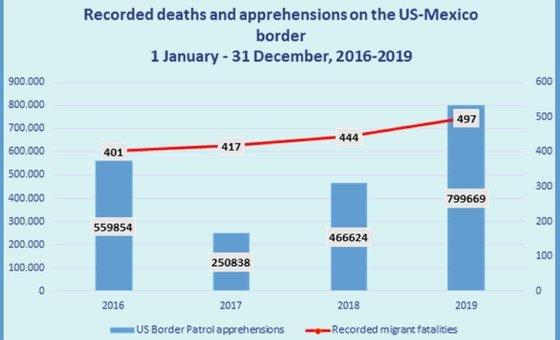Federal Charges Filed in Texas Migrant Truck Tragedy
Federal prosecutors have indicted a Texas truck driver along with three accomplices in connection to the heartbreaking deaths of 53 migrants found inside a sealed tractor-trailer earlier this month. This tragic event has sparked widespread national concern, shedding light on the extreme hazards migrants face when entrusting their lives to illicit smuggling networks. Authorities have charged the suspects with multiple federal offenses, including conspiracy to transport undocumented migrants and human trafficking violations.
Details about the accused individuals include:
- Truck Driver: Allegedly responsible for knowingly transporting migrants under life-threatening conditions that resulted in numerous fatalities.
- Three Co-Conspirators: Believed to have assisted in organizing the smuggling operation and facilitating the use of the vehicle.
| Role | Charges | Current Status |
|---|---|---|
| Driver | Conspiracy, human smuggling, involuntary manslaughter | Detained |
| Accomplices (3) | Conspiracy, alien transportation | Arrest warrants issued |
Officials have indicated that the investigation is ongoing, with additional charges anticipated as more evidence emerges. This case starkly illustrates the deadly risks migrants endure and highlights the pressing need for comprehensive immigration reform.
Conditions Leading to the Fatalities Inside the Tractor-Trailer
Federal investigations into the tragic deaths of 53 migrants inside a locked tractor-trailer in Texas have revealed harrowing details about the inhumane conditions endured during transport. The victims were confined in an overcrowded, unventilated space where temperatures soared to lethal levels. The indictment states that the defendants were fully aware of the dangers posed by the cramped quarters, lack of airflow, and absence of water, yet proceeded regardless, resulting in this catastrophic loss of life.
Key investigative findings include:
- Severe overcrowding: The trailer was loaded far beyond its safe capacity, drastically limiting ventilation.
- Extreme internal heat: The absence of airflow caused temperatures inside the trailer to rise to fatal extremes.
- No emergency intervention: There was no attempt to provide medical aid or relief during the journey.
| Aspect | Details |
|---|---|
| Number of Charges | Multiple counts including manslaughter and human smuggling |
| Vehicle Type | 18-wheeler tractor-trailer |
| Fatalities | 53 migrants |
Strengthening Border Security to Prevent Future Losses
The devastating loss of 53 lives in the Texas tractor-trailer incident has reignited urgent discussions among border security experts about the necessity for enhanced protective measures. Analysts argue that current border enforcement lacks the technological sophistication and resource allocation needed to effectively detect and disrupt human smuggling operations. Without significant upgrades to infrastructure and improved interagency collaboration, vulnerable migrants will continue to face life-threatening situations.
Experts recommend the following strategies to bolster border security:
- Cutting-edge surveillance tools: Deployment of drones, thermal imaging cameras, and AI-driven monitoring systems to identify suspicious movements in real time.
- Specialized training for personnel: Focused programs to recognize trafficking indicators and enhance rapid response capabilities.
- Community outreach initiatives: Educational campaigns targeting at-risk populations to raise awareness about the dangers of smuggling and encourage reporting of illicit activities.
- Integrated data-sharing platforms: Systems that facilitate seamless intelligence exchange among federal, state, and local agencies to coordinate interdiction efforts.
| Security Measure | Anticipated Benefit | Projected Rollout |
|---|---|---|
| Drone Surveillance | Expanded border monitoring and quicker threat detection | 6-12 months |
| Personnel Training | Improved interdiction success rates | 3-6 months |
| Community Programs | Heightened public awareness and cooperation | Ongoing |
| Data Sharing Platforms | Enhanced coordination and faster response times | 12-18 months |
Policy Reforms Advocated to Combat Human Trafficking and Protect Migrants
In the aftermath of the Texas migrant tragedy, human rights organizations and advocacy groups are intensifying their demands for sweeping legal and policy reforms. They stress the critical need to dismantle trafficking networks and bolster protections for migrants who risk everything in search of safety and opportunity. Advocates contend that existing legislation falls short in addressing the multifaceted nature of trafficking and the vulnerabilities migrants face, urging lawmakers to prioritize enforcement, victim support, and international cooperation.
Primary reform proposals include:
- Harsher penalties for traffickers and smugglers to deter criminal activity
- Balanced border security policies that integrate humanitarian assistance
- Expanded legal migration pathways, including visas and asylum options
- Comprehensive victim services offering medical, legal, and psychological support
These recommendations reflect a growing consensus among policymakers, activists, and community leaders that effectively combating human trafficking requires a dual approach of stringent enforcement and expanded protections. As investigations proceed, pressure mounts for legislation that combines prevention, prosecution, and protection to avert future tragedies.
| Reform Focus | Recommended Action | Expected Outcome |
|---|---|---|
| Legal Penalties | Strengthen sentencing guidelines | Discourage trafficking and smuggling operations |
| Border Management | Integrate enforcement with humanitarian aid | Lower migrant fatalities |
| Migration Policy | Broaden access to visas and asylum | Provide safer migration alternatives |
| Victim Support | Enhance medical and legal assistance | Facilitate recovery and social reintegration |
Conclusion: Seeking Justice and Preventing Future Tragedies
The indictment of the Texas truck driver and three accomplices marks a pivotal moment in the investigation of one of the deadliest migrant smuggling incidents in recent U.S. history. As authorities continue to uncover the full scope of this tragedy, the case underscores the urgent necessity for comprehensive immigration and anti-trafficking policies. Families of the victims and affected communities await justice, while the nation grapples with the broader challenge of preventing such heartbreaking losses in the future.




